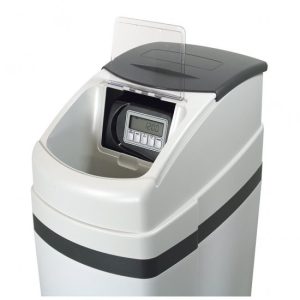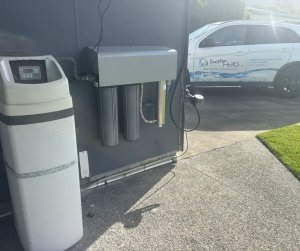Nitrates in Your Water Supply: What Every New Zealand Water Tank Owner Should Know
Concerned about nitrates in your water, and want to know how to get rid of them?
Recent studies show over 30% of rural water samples exceed half the legal limit, with Canterbury, Waikato, and Southland most affected. The main sources are fertiliser use and livestock runoff, which contaminate shallow groundwater.
Nitrates occur naturally, but farming has caused levels in New Zealand’s groundwater to rise sharply – posing health risks such as blue baby syndrome, pregnancy complications, and potential cancer links.
Read on to understand what Nitrates are, the associated risks, how to test your water, and how to keep your family safe.
What Are Nitrates and Why Do They Matter?
Nitrates (NO₃⁻) are naturally occurring compounds, but human activity – especially farming – has dramatically increased their presence in groundwater.
Health Risks of Nitrates in Drinking Water:
- Blue Baby Syndrome: A potentially fatal condition in infants
- Pregnancy Risks: Linked to low birth weight and preterm birth
- Cancer: Possible connection to colorectal cancer
- Thyroid & Hormonal Disruption: Even at levels below current safety limits
Rising Nitrate Levels in NZ Water Supplies
Recent research paints a concerning picture:
Largest National Study (2022–2024). Source: RNZ
- Over 2,400 rural water samples tested
- 31% had nitrate levels above half the legal limit
- 5% exceeded the Maximum Acceptable Value (MAV) of 11.3 mg/L nitrate-nitrogen
- Canterbury, Waikato, and Southland had the highest contamination rates
- Seven other regions showed emerging nitrate issues
Canterbury Case Study
Of 81,000 people using private bores:
- 6.8% may be drinking water above the MAV
- 43.1% are above half the MAV
Environment Canterbury declared a “nitrate emergency” in 2025
Why Are Nitrate Levels Increasing?
The primary driver is agricultural intensification:
- Cow urine, synthetic nitrogen fertilisers, and effluent runoff are major contributors. Source: NZ Ministry for the Environment
- Land use changes over the past 30 years have significantly increased nitrate leaching
Private bores are especially vulnerable:
- Most rural households use shallow groundwater with no mandatory testing
- These supplies are more susceptible to surface contamination
What Are Safe Nitrate Levels?
New Zealand’s drinking water standards (based on WHO guidelines):
- 50 mg/L as nitrate (NO₃)
- 11.3 mg/L as nitrate-nitrogen (NO₃-N)
These are enforced by Taumata Arowai, NZ’s water services regulator. These levels are under constant review as more research about the impact of nitrates is undertaken.
How to Test Your Water for Nitrates
If your tank is fed by bore or surface water, testing is essential.
1. Laboratory Testing
- Accredited labs offer comprehensive water chemistry tests (see – Laboratories · Hinekōrako for a current list)
- Results typically include nitrate-nitrogen and other minerals – all critical information to ensure a safe water supply
2. DIY Test Kits
- NIWA’s SHMAK kits use colorimetric methods
- Good for basic monitoring, but less precise than lab tests
Note: Nitrate levels tend to increase over time, especially in areas with intensive farming or porous soils.
How Nitrate Accumulation Works
- Slow Groundwater Movement: Nitrates persist for decades
- Legacy Pollution: Past farming practices still impact water quality
- Cumulative Effect: Nitrates don’t easily degrade in oxygen-rich groundwater
Sources: GNS Science and MOE
What This Means for You:
- Regular testing may show gradual increases
- Seasonal variation can cause spikes after heavy rain or irrigation
How to Remove Nitrates from Your Water
Boiling, carbon filters, and standard softeners do not remove nitrates.
Safe H2O’s Tank Cleaning Method
Our purification process ensures the existing water in your tank is safe from nitrates (see How We Clean Your Water Tank). However, it doesn’t treat the incoming source water.
Ongoing Treatment Options:
1. Reverse Osmosis (RO)
- Removes up to 98% of nitrates
- Available as under-sink or whole-house systems
2. Ion Exchange Systems

- Use nitrate-selective resin
- Require salt regeneration and maintenance
- Often the most cost-effective solution for source water

Not sure which system suits your needs? Safe H2O can help you choose the best option for your household.
Final Thoughts
Nitrate contamination is becoming a serious concern across rural New Zealand, but regular testing and the right treatment system can keep your household’s water safe.
Want peace of mind about your water quality?
Reach out to our friendly team to discuss how to keep your supply nitrate-free
